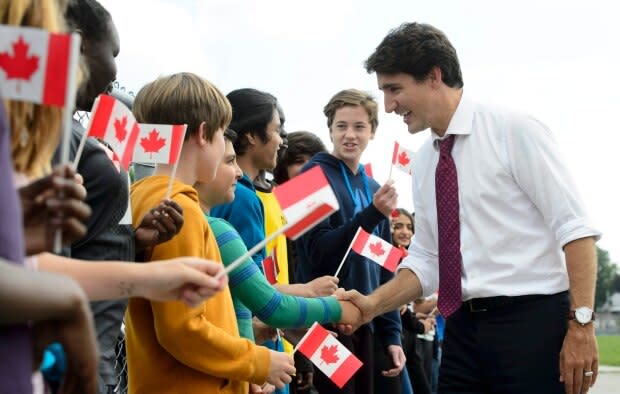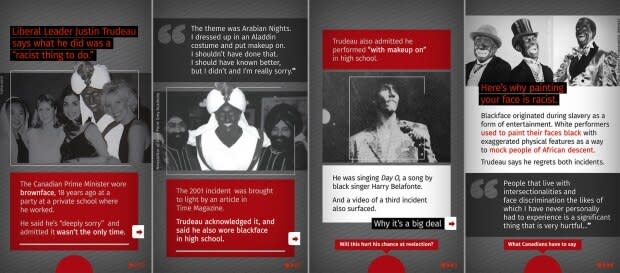Why people who need help most lose out on election handout promises: Don Pittis
There is lots of research that shows the best thing you could do for the Canadian economy in the long run is to wipe out poverty and help young people.
While parties of the left and right may identify differing strategies to do it, most politicians know poverty and youth-gone-wrong are bad for the country as a whole. They contribute to crime and poor health outcomes and create a lingering burden on the better off parts of the economy.
But experts who have studied the phenomenon say something strange happens to those good intentions during elections. They say the calculus of winning forces political parties that want to win into narrowing their focus to the richer and the older.
"In our system, once the election thinking takes over, the professionals take over in a sense and their basic goal is to maximize returns, in other words, 'How do we maximize the number of seats we can win?'" says Henry Milner, a scholar who has written extensively on Canadian and Quebec democracy.
The essential goal of those professional campaign organizers, the shadowy people behind the politicians charged with getting their candidates elected, is to identify undecided voters and appeal to the majority of them.
"Very seldom are those young people or poor people," says Milner, author of The Internet Generation: Engaged Citizens or Political Dropouts, who has a research chair in electoral studies at the University of Montreal.
Voting at 16?
Repeated studies in Canada and elsewhere have shown that younger and poorer people don't exercise their right to vote at the same rate as those who are older and wealthier.
While most Canadian electoral research doesn't focus directly on income — including the 2016 Statistics Canada report on the rise in voting turnouts between the 2011 and the most recent 2015 federal election — proxies for income such as education levels and home ownership show it happens here as well.
According to Milner, it may be that young and poorer people are focused on factors other than electoral politics. Poorer people may be in ethnic subgroups, busy with lives in turmoil or without a tradition of political participation.
Similarly when young people hit voting age at 18 they are often at an unstable point. Having just finished high school, they are struggling to find work or housing or finding their way in relationships and post-secondary eduction.

That's why one of Milner's proposals is to experiment with a voting age of 16 to inculcate the tradition of voting while young people are still embedded in a relatively stable life of home and school.
Milner says not being exposed to traditional sources of Canadian news such as radio, TV or newspapers may also make a difference.
"The internet yes, if you are interested in [politics] you can find it easily, but if you're not interested particularly, it is just so easy to avoid it entirely," says Milner.
However there are signs political leaders should be wary of assuming young voters are ill-informed when issues arise that strike a chord. The CBC site for Snapchat, the source used by some of the youngest media viewers, got hundreds of thousands of hits within a few hours following the Justin Trudeau brownface story.
Youth issues
"You could have a special case where an issue comes up that really affects young people," says Milner. "One might argue that climate change may be emerging as such."
Certainly youth voting bounced back from what experts called crisis levels before the 2015 vote where fewer than 40 per cent of eligible voters between 18 and 25 cast their vote. Those low levels led some to suggest voting would have to be made compulsory. And even 2015's rebound of seven percentage points left the youth vote far behind older groups.
Milner is convinced Trudeau's image as a youthful outsider who young voters could identify with was partly responsible for a recovery from the lowest levels. Election experts will be waiting anxiously to see whether, once drawn into the election process, they will vote again this time.
The other reason that long-term economic proposals are not directed at the young is that there's evidence younger people don't pay attention, tending to live in the moment. However, economic issues that affect young people directly, such as sharp rises in tuition in Quebec, attracted the attention of young voters.

Another long-time scholar of the electoral process, Keith Banting, currently at the School of Policy Studies at Ontario's Queen's University, says a new feeling of anxiety among the Canadian middle class has made politicians wary of explicitly targeting economic policy toward the poor.
"It's not a surprise to me that we have over the last 20 years shifted our priorities from helping the poor to helping people who are under pressure in the broad middle class," says Banting.
Redistribution by stealth
He says research by the people in the centre-left of U.S. politics has determined that fighting poverty does not motivate voters, so instead they drew voters to the polls by focusing on "the stressed middle." Essentially they found people were so worried about themselves they seem unable to think about helping those less fortunate.
In Canada too, says Banting, anti-poverty policies, while good for the economy over the long term, are simply not politically sustainable. Instead, Canada's parties, which all cling to the political centre and realize the benefits of bringing the poorest into the more active part of the Canadian economy, indulge in something Banting calls "redistribution by stealth."
As an example, Banting recalls an eight-page Liberal Party document on child benefit payments which would clearly help poor people the most but was also clearly addressed to the better off people whose political support the party needed.
"The word poverty did not appear in the document but it was sold as helping the middle class and, quote, those struggling hard to join us."
Follow Don on Twitter @don_pittis


